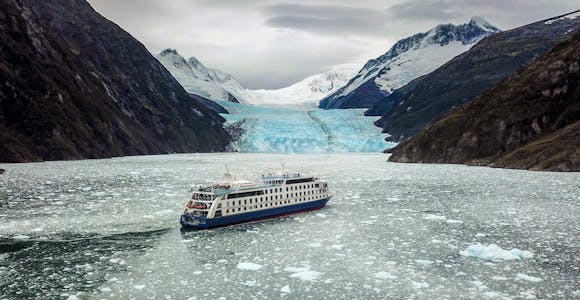
Patagonia Cruises
Get to parts of Patagonia that even the toughest hikers can't reach. Adventure cruises take you to the glaciers of the Chilean Fjords and Cape Horn off Tierra del Fuego.
Discover MoreDeep roots in Patagonia: We are ex-guides, tour leaders, outdoor enthusiasts, & adventurers.
We’ve got our feet on the ground: Impartial advice, a bespoke service, and at no extra cost.
For the ends of the Earth: Sustainability is more than our carbon footprint (but we’re reducing that too).
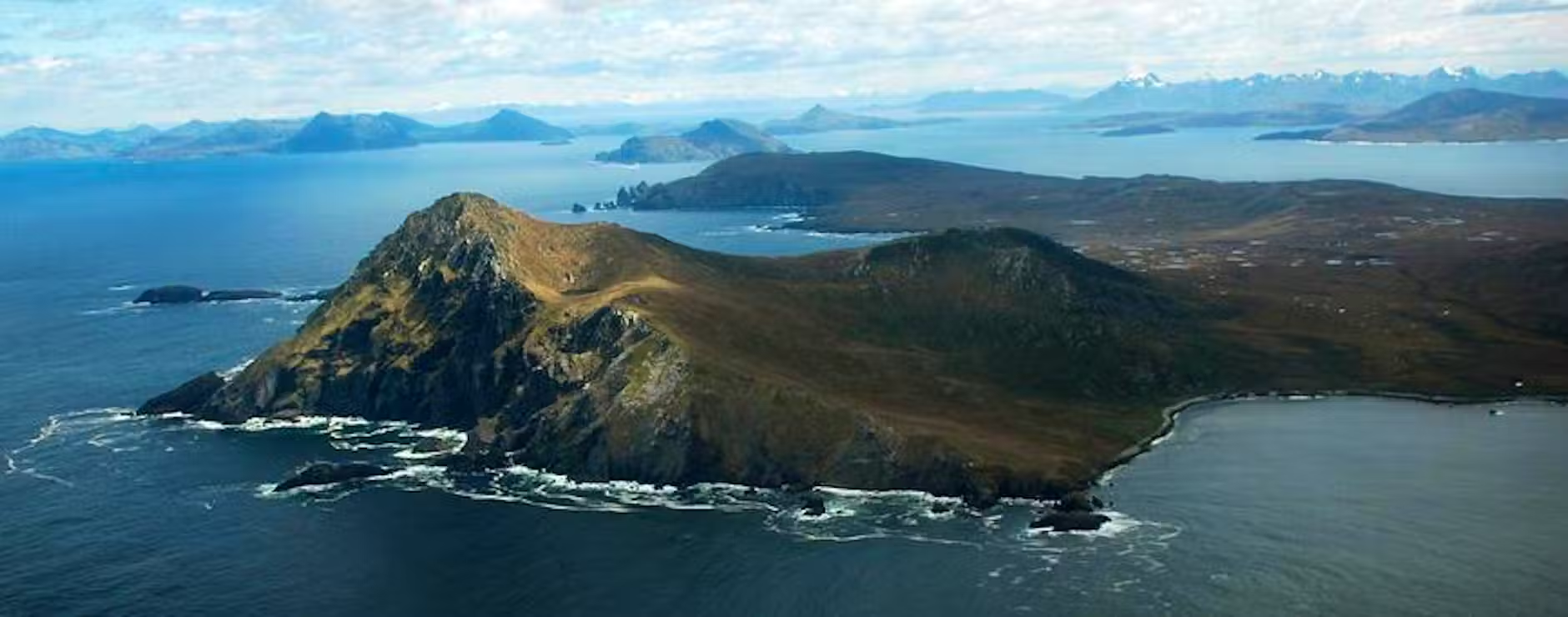
Cape Horn lies off Tierra del Fuego at the southernmost tip of South America. This is a place steeped in nautical myth, and a bucket list destination only accessible by small-ship expedition cruise. Glide through the Beagle Channel past mighty glaciers, hike through forests, go wildlife watching and learn the true history of a place where mariners once feared to sail.
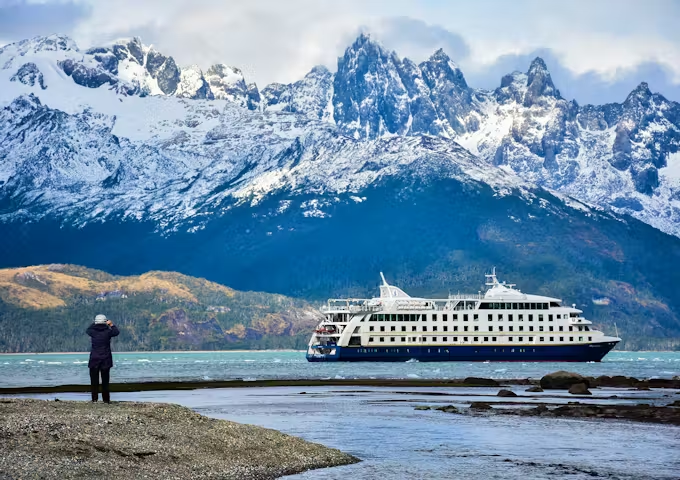
Cruising past the Cordillera Darwin mountains
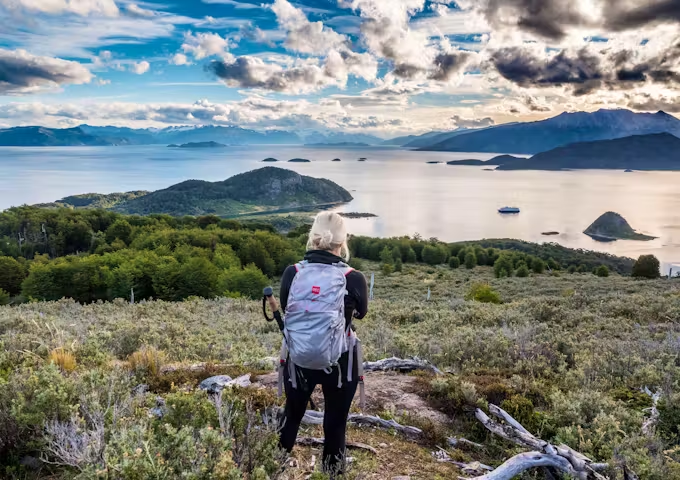
Looking over the Beagle Channel
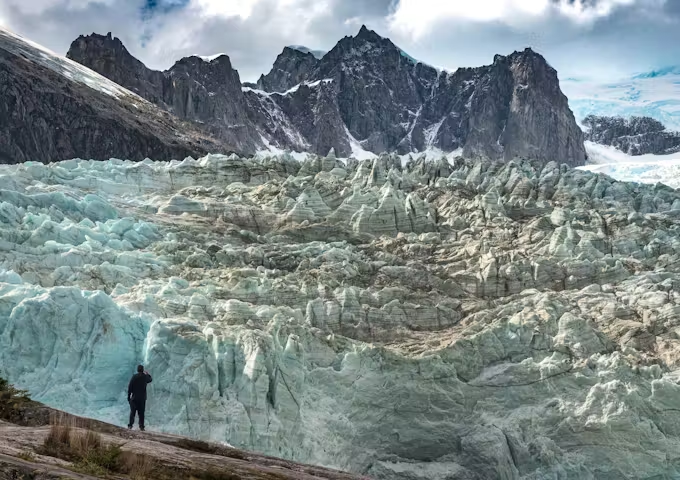
Glacier walk in Tierra del Fuego
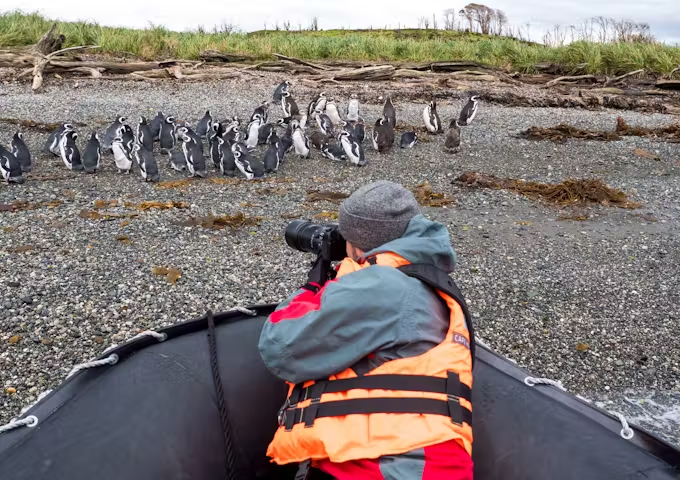
Magellanic penguins on the Tucker Islets
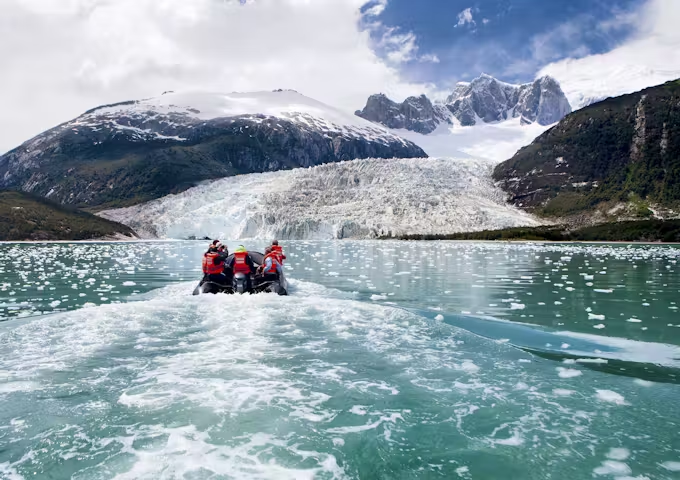
Glacier cruising in Tierra del Fuego
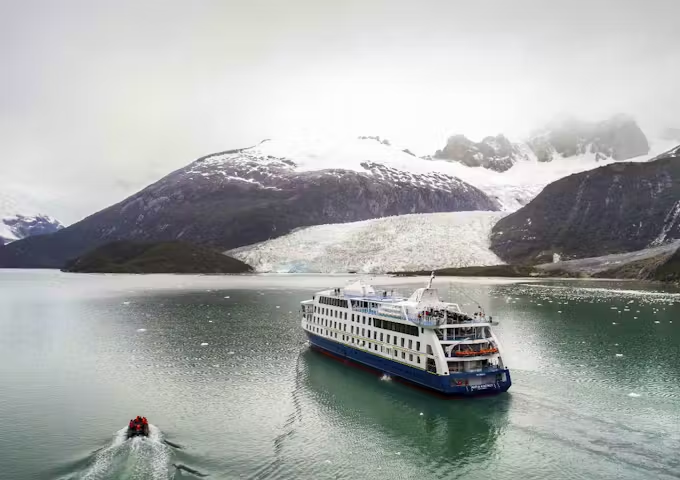
Approaching the Pia Glacier
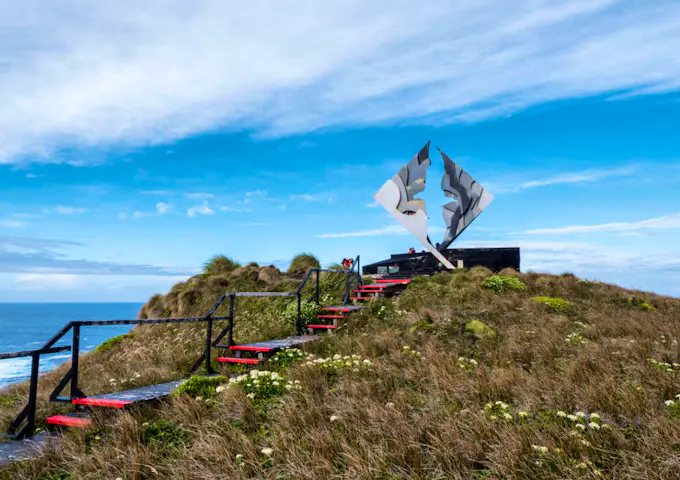
Land at Cape Horn
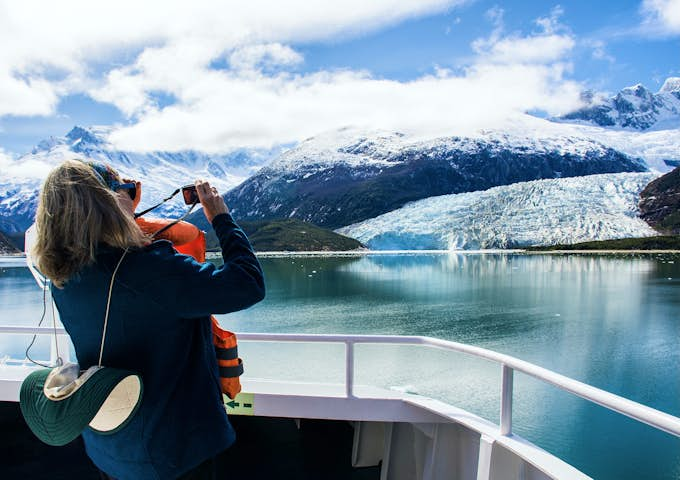
Discovering the glaciers of Tierra del Fuego
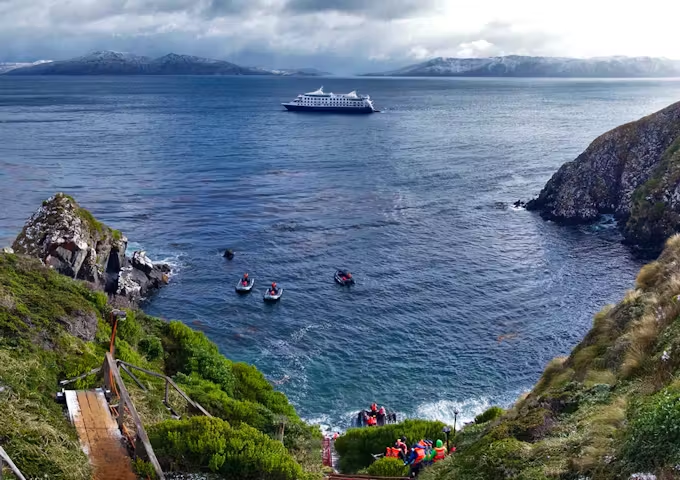
Zodiac landing at Cape Horn
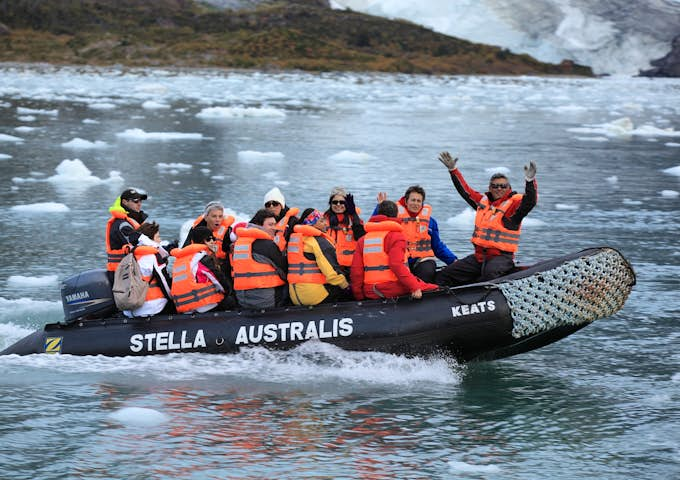
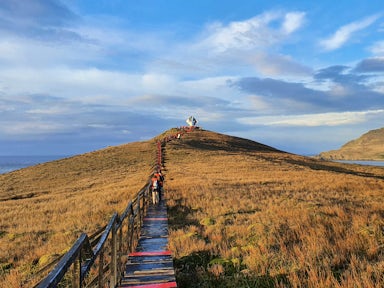
Walking to the Cape Horn monument
Cape Horn has been leaving sailors awestruck ever since the navigator Willem Schouten first sailed around it in January 1616, naming it for his Dutch hometown of Hoorn. Its fearsome reputation is down to its location in the storm-swept seas off the southernmost tip of South America between the Atlantic and Pacific Oceans.
In 1833, Captain Robert Fitzroy and Charles Darwin discovered the Beagle Channel, an alternative and calmer route past Tierra del Fuego, but the Cape continued to claim ships and men until the opening of the Panama Canal in 1914 rendered the old and dangerous route between the oceans obsolete.
The lives of the seamen from every nation who perished in the battle against the Southern Ocean while crossing the Horn are remembered today at the Cape Horn Monument. Touching the monument automatically makes you an honorary member of the International Association of Cape Horniers.
On landing at Cape Horn visitors may also walk to the tiny Stella Maris Chapel and the world's most southerly lighthouse, maintained by the Chilean navy. Its resident keeper and family often extend invitations to tourists to visit inside.
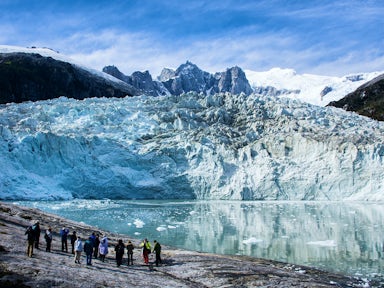
At the foot of the Pia Glacier
Cruising around Tierra del Fuego to Cape Horn offers the chance to see some incredible landscapes that would be impossible to reach by any other means.
One of the greatest attractions is cruising through the sheltered waters of the Beagle Channel. Its so-called Glacier Alley offers a parade of epic blue-grey glaciers, flowing slowly down from the Darwin Range with their craggy frozen tongues poking into the channel’s many bays. The cruise includes excursions by inflatable zodiac boats to the glaciers, with landings to hike up moraines to viewpoints over the glaciers. Pia Glacier is the most famous and spectacular glacier visited during the cruises.
Other notable sights include Águila Glacier, which offers hiking around its lagoon and Condor Glacier, both in Agostini Sound. Other notable landscapes include beautiful Wulaia Bay, where Darwin once landed. This was the site of an early church mission to Tierra del Fuego and is now home to a fascinating museum housed in an old radio station, focussing on the story of the original Yámana inhabitants of the region. Wulaia Bay also offers a selection of tremendous forest hikes to viewpoints over the crinkled coastline.
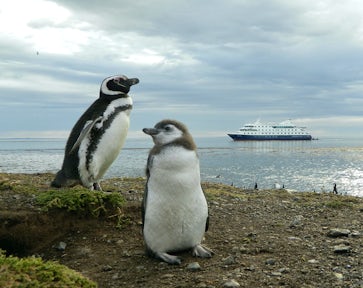
Magellanic penguins on Magdalena Island
Penguins are an ever-popular highlight of cruising in Tierra del Fuego. Large Magellanic penguin colonies can be found on visits to the Tucker Islets and Magdalena Island. Rockhopper penguins also nest near Cape Horn, though you’ll need luck, a calm sea and a keen eye to see them out on the water.
The Beagle Channel is an excellent place for wildlife watching. The birdlife is particularly rich: you can see many species more traditionally associated with Antarctic waters such as black-browed albatrosses, southern giant petrels and imperial cormorants, as well as South American species such as Magellanic oystercatchers, South American terns and striated caracas.
Dolphins, including the pretty black-and-white Commerson’s dolphins, the dusky dolphin and Peale’s dolphin may sometimes be seen. More common sightings are of the South American sea lion, especially in the Beagle Channel where they haul themselves out on rocky islets. Southern elephant seals may also be seen in a colony at Ainsworth Bay if zodiac landings are made there. Day hikes here also offer plenty of evidence of the large beaver population – introduced in the 1940s to encourage a local fur industry.
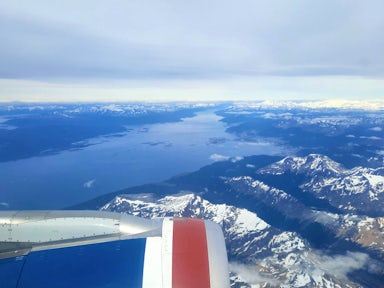
Flying over Tierra del Fuego and the Beagle Channel
One advantage of small-ship cruising to Cape Horn is that your trip starts and ends in either Punta Arenas in Chile or Ushuaia in Argentina, allowing you to easily extend your Patagonia trip.
Punta Arenas is just three hours by road to Puerto Natales, where most travellers arrive to explore the marvels of Torres del Paine National Park. Punta Arenas is also connected by air to the capital Santiago, as well as Puerto Montt for exploring the Chilean Lake District, and Coyhaique (Balmaceda) for hiking in Aysen.
Ushuaia offers plenty of options for exploring Tierra del Fuego National Park. As well as flights to the capital Buenos Aires, you can also fly direct to El Calafate, allowing you to connect quickly through to the many hiking attractions of Los Glaciares National Park.
Cape Horn Cruises trips scored 4.5/5 from 526 reviews
Cape Horn was the most anticipated and most memorable experience but the other zodiak trips were truly exciting as well. Read the full review
Travelled: April 2018
Angie Littlefield - Canada
The highlight of the trip had to be a perfect day at Cape Horn in weather to die for. Surprises were everywhere while travelling down to the Cape, glaciers that eclipsed those in Alaska, wildlife to be seen on all our excursions.
Travelled: October 2017
Peter - Australia
I'll tell my grandchildren that I've been to one of the few remaining wildernesses and that interesting life is not dependant on cities.
Travelled: February 2017
Colin - UK
The trips were really interesting and especially landing on Cape Horn! Plenty of Dolphins, Cormorants and Penguins.
Travelled: December 2016
Brian -
Sailing to Cape Horn was excellent, with great landscapes, wildlife, and charming and highly experienced skipper.
Travelled: December 2016
Stephen - UK
Crossing the Beagle Channel by Rib to Puerto Williams felt like reaching the end of the Earth - and it is. Especially with the view towards Cape Horn.
Travelled: January 2016
Alison -
A wonderful trip; perfect in every way with no snags. Thank you for all of your coordination. We were able to land on Cape Horn (the main reason I chose the cruise) which was great!
Travelled: December 2015
Bill -
The cruise was excellent, and we disembarked at Cape Horn which was one of the highlights of the trip for me. The crew members were very helpful and enthusiastic.
Travelled: March 2015
John -
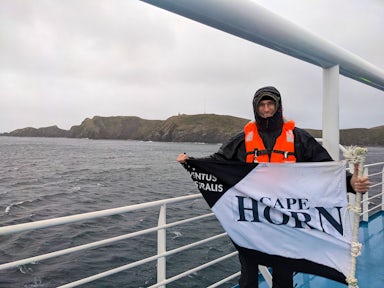
Celebrating reaching Cape Horn
Small ship cruises to Cape Horn and around Tierra del Fuego operate between Punta Arenas and Ushuaia, sailing from the end of September to the very beginning of April. Two ships cover this route, the Ventus and the Stella Australis. Both carry a maximum of 210 guests, with 100 comfortable cabins in a variety of classes. The cruises are all-inclusive (including alcohol).
The experience on board is more akin to an Antarctic expedition cruise than a ‘traditional’ cruise, with daily excursions by inflatable zodiac boat and onboard educational presentations about Tierra del Fuego’s wildlife, landscapes and history given in English by an expert guiding team.
Cruises last four nights/five days in both directions. The itineraries in each direction do differ slightly in where they visit but Cape Horn, the Beagle Channel, Glacier Alley, Pia Glacier and Wulaia Bay are always included whether you choose to sail from Punta Arenas or Ushuaia.
At the present day the horrors of the Cape have somewhat abated. This is owing to a growing familiarity with it; but, more than all, to the improved condition of ships in all respects.
Herman Melville novelist
Ships sail from the very start of October to the end of March.
Patagonia’s weather can famously encompass four seasons in a single day. Throughout the cruising season, temperatures average somewhere between 5–15C (41-49F). Strong winds are always a possibility, along with rain and even the occasional snow flurry. Zodiac landings require water-proof gear as you’ll be exposed to the elements, so it's wise to pack accordingly.
The changeable weather at Cape Horn has been famous for centuries, so there is always a small chance that conditions may prevent a landing. In recent seasons, over 80% of visits to the Horn had successful landings there.
Wildlife sightings can never be guaranteed but the cruise ships call at either the Tucker Islets or Magdalena Island, which are both home to large Magellanic penguin colonies. The penguins come ashore between early October and late March, coinciding with the operating season for the ships.
Many landings include the option to do a short hike to a viewpoint over a glacier or similar. The hikes usually include routes rated from easy to moderate, though even those rated for the most active guests can typically be done by anyone with a reasonable level of fitness.

Get to parts of Patagonia that even the toughest hikers can't reach. Adventure cruises take you to the glaciers of the Chilean Fjords and Cape Horn off Tierra del Fuego.
Discover More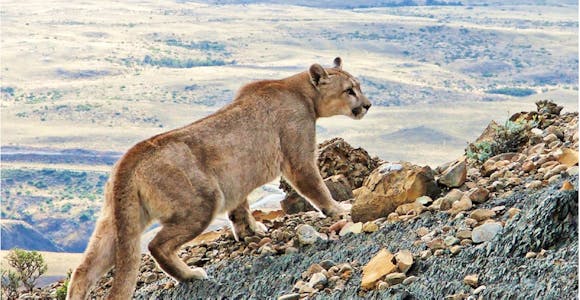
Patagonia is home to an array of amazing wildlife. We work with hand-picked local wildlife guides to help you experience the region's nature at its finest.
Discover More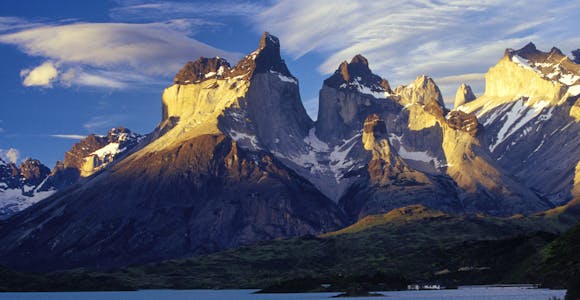
Patagonia is a vast region - spanning two different countries and over 1,000 miles north to south. You could spend years exploring the region's varied landscapes.
Discover More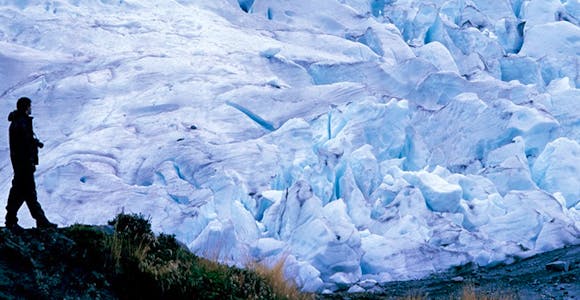
Patagonia is home to some truly beautiful and gigantic glaciers. We've chosen our favourites in the hope that you'll get to see as many of them as possible.
Discover MoreWe'll spend some time listening to your aspirations, then discuss the kind of experience that might suit you.
Next we'll discuss the options, shortlist the best trips for you and present you our impartial recommendations.
We'll place a 24 hour hold on your preferred option - without obligation - whilst we talk through the details.
This website uses cookies to ensure you get the best experience on our website. Privacy policy